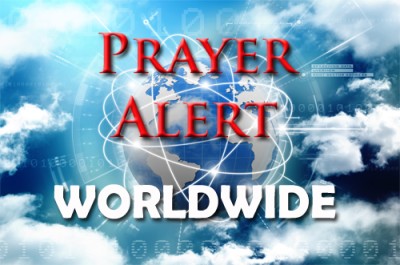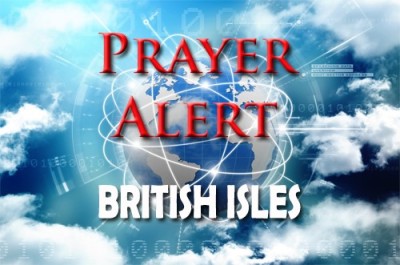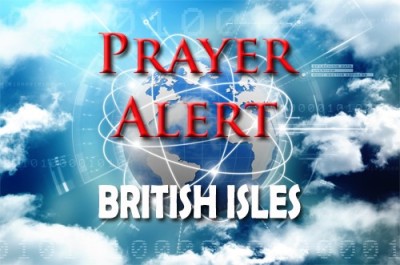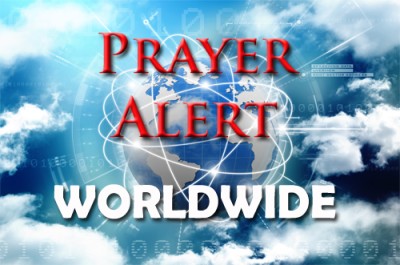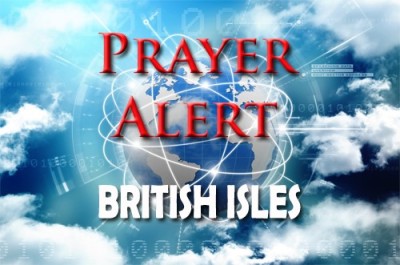Hong Kong: new law draws widespread criticism
21 Mar 2024There has been a wave of criticism over Hong Kong's new security law, known as Article 23, unanimously passed by the pro-Beijing parliament on19 March. It allows closed-door trials, extended detention without charge, and penalties including life imprisonment. 81 lawmakers and public figures from across the world have said that it undermines due process and fair trial rights and violates Hong Kong's obligations under international human rights law. Hong Kong's chief executive has defended the law, claiming it will protect against foreign interference. However, critics see it as ‘one more step towards the system of mainland China’, and describe a ‘chilling effect’ on civil society. There are also concerns that the law could also be used to target HongKongers overseas, or their families and friends back home. The law's passage marks another blow to Hong Kong's autonomy, tightening China's grip on the city.
On 11 March Paul Alexander, who held the Guinness World Record for the longest time living in an iron lung, passed away aged 78. He had lived in the mechanical ventilator since polio paralysed him at the age of six, just before the introduction of the polio vaccine. Despite doctors' grim predictions and witnessing the deaths of many other polio patients, he never let his disability define him. He mastered mouth painting and writing, and even learned how to breathe to spend time outside the iron lung. His 2020 autobiography recounts his life story, including his academic achievements and his career as an attorney specialising in family law and bankruptcy. Alexander's deep Christian roots were evident in his family's devout Pentecostal faith. In a 2022 interview, he compared the profound love his parents showed him to God's love, and emphasised the importance of purpose in life. A friend raised over $143,000 to support Alexander's medical and funeral expenses, testimony to the widespread inspiration he provided.
A UK study has revealed a significant decline in cancer death rates among middle-aged individuals since the early 1990s, despite an increase in cases. Cancer Research UK, a key contributor to the study, noted a 37% decrease in male cancer deaths and a 33% decrease in female cancer deaths from 1993 to 2018. The research found notable reductions in death rates for many, including a 54.3% decrease in cervical cancer fatalities among women, largely due to the HPV vaccine and better screening. Similarly, lung cancer deaths dropped significantly, particularly in men, partly due to reduced smoking rates. There were substantial mortality reductions in both men and women aged 35-69 years, reflecting the success in cancer prevention, earlier detection, and improved diagnostics. However, there was a notable increase in cancer diagnoses in this age group, attributed to such factors as obesity, alcohol consumption, and sun exposure.
African prisoners transformed by Gospel message
14 Mar 2024In a notorious African prison, 166 death-row inmates existed in a state of despair; but a team of missionaries and medical professionals were undeterred, ready to offer both healthcare and the gospel. Believing in the transformative power of faith, they planned to preach and provide individual counselling during medical checks. They were driven by a conviction that even these forsaken souls deserved to hear the message of hope. As the Gospel was shared, hardened faces softened with tears, signalling an emotional and spiritual awakening among the inmates. This moment marked a shift from hopelessness to a glimmer of hope and understanding. The medical consultations became opportunities for inmates to personally embrace faith, with many choosing to commit to a new spiritual path. The next day, the prison warden observed a profound change. Inmates were deeply engaged in reading the Bible and discussing its teachings, transforming the prison's atmosphere to one of joy and community.
Tories AND Labour accused of ‘shocking’ racism
14 Mar 2024Diane Abbott, an independent MP and former Labour member, has accused both the Conservative and Labour parties of 'shocking' racism in the recent Tory donor controversy. The row centres on businessman Frank Hester's alleged racist and sexist comments about Abbott, for which he has since apologised but insisted he's not racist or sexist. Hester donated £10 million to the Conservatives, which has sparked debate over whether the party should return the funds. Abbott criticised the Conservatives for their long-standing role in perpetuating racism, including personal attacks against her. She also expressed disappointment with the Labour party's response, which initially focused on the financial aspect rather than the racism and sexism involved. The scandal has led to widespread criticism, with political figures across the spectrum, including business secretary Kemi Badenoch and former chancellor Kwasi Kwarteng, condemning Hester's remarks. Rishi Sunak, under increasing pressure, said that Hester's apology should be accepted. Internally, his party faces disagreements over handling the donation, with the Scottish Conservatives calling for a review.
Justin Welby and Stephen Cottrell have expressed concerns over Michael Gove's plans to redefine extremism, warning that the redefinition could mistakenly target innocent individuals, exacerbating division and infringing on freedoms of speech and worship. Welby said that extremism is a shifting problem across all faiths, posing significant dangers, including the rise of antisemitism and Islamophobia. He stressed the importance of involving diverse groups in defining extremism, cautioning against a government-only approach. The current definition of extremism includes opposition to fundamental British values like democracy and mutual respect for different faiths. The archbishops are concerned that Gove's forthcoming redefinition may disproportionately affect Muslim communities, increasing hate and abuse. They urged broader consultation and offered the CofE's assistance in facilitating community discussions. In response, the Government reiterated plans to appoint an independent adviser on anti-Muslim hatred.
NHS England has announced that children will no longer be prescribed puberty blockers at gender identity clinics, except as part of clinical research trials. This significant policy shift follows an independent review and a dramatic increase in referrals to the Gender Identity Development Service (GIDS) - from under 250 to over 5,000 in a decade. Puberty blockers, used to pause physical puberty changes, have been at the centre of debate due to concerns about consent and long-term effects. The trust which runs GIDS will close at the end of March, replaced by two new services at Great Ormond Street and Alder Hey hospitals. These will offer a more holistic approach to care, including experts in neurodiversity, paediatrics, and mental health. Currently, fewer than 100 children are on puberty blockers and will continue their treatment. This decision has been described as a 'landmark' by health minister Maria Caulfield, who has emphasised child safety and evidence-based care. See also
In a distressing incident involving a firm of funeral directors in Hull, East Yorkshire, a widow was shocked to discover that her husband’s ashes, which had been made into jewellery, might not be his. After investigating, the police have removed the bodies of 35 individuals and suspected human ashes. The woman, who lost her husband eight months ago, is now faced with the harrowing task of identifying his body. This development is part of a broader police inquiry, which has led to the arrest and subsequent bail of two individuals. Many families have raised concerns about receiving incorrect ashes following funerals. A friend of another affected family from Beverley described how women in the family had turned ashes into crystal jewellery, only to learn the deceased had been in a freezer all this time, raising questions about which ashes had been used. The police have received over 1,000 calls from the public and are conducting formal identification procedures for the recovered bodies and ashes.
